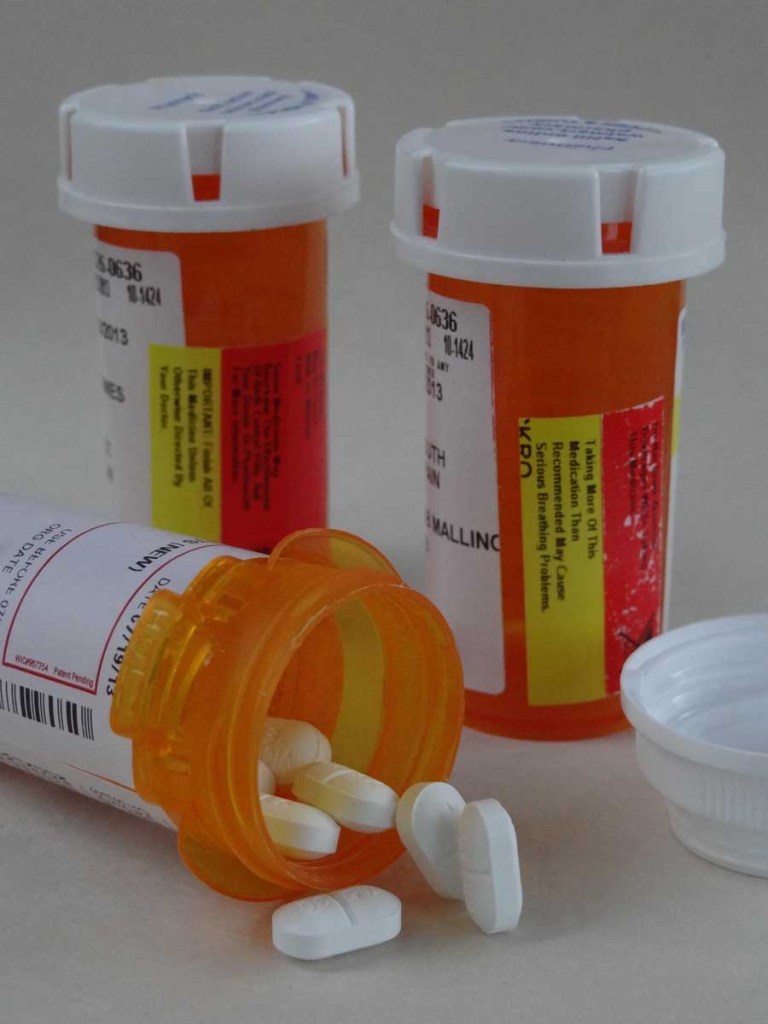Opioid crisis in rural areas may be tackled through telemedicine
Published 4:00 pm Tuesday, September 27, 2016

- Drugs
GILES COUNTY, Va. – Robert Devereaux is a family physician in this southwest corner of Virginia, where problems surrounding prescription opioid use far outstrip the capacity of psychiatrists and addiction specialists to treat them. When he found crushed fragments of painkiller pills inside the nose of an older patient with chronic back pain, the most Devereaux could do was refuse to prescribe more.
“There are a lot of patients in denial. . . . It’s a lot of families that have suffered horribly from this,” he said, sitting in his one-story clinic in the small town of Pearisburg. “The mental health issues aren’t going to go away.”
But some health professionals, as well as the federal government, think technology could offer a solution – by using video chat to connect patients in need with faraway physicians who know how to treat addiction.
Their telemedicine effort is part of a larger initiative to fight the opioid epidemic in hard-hit rural areas such as Appalachia. This summer, the U.S. Department of Agriculture directed $1.4 million to five pilot projects in southwest Virginia, Tennessee and Kentucky. One will be run by Carilion Clinic, the health system that operates Devereaux’s practice, along with other hospitals and medical practices in the region.
“This is an obvious potential direction to move in,” said Colleen Barry, a professor of health policy at Johns Hopkins University and co-director of its Center for Mental Health and Addiction Policy Research. “There are some real opportunities and some pretty significant challenges.”
The initiative comes as the nation’s addiction to prescription painkillers remains at epidemic levels. In 2014, the most recent year for which data is available, 14,838 Americans died from overdoses that involved drugs such as oxycodone, according to the Centers for Disease Control and Prevention.
In Virginia, about 4.6 percent of residents – some 380,000 people – abused these drugs last year. Between January 2015 and this past March, the state medical examiner’s office recorded almost 600 deaths from prescription opioid overdoses. Two were in Giles County, population 17,000.
A pair of little-known addiction treatment programs are one county over – although more than 24 miles from Pearisburg, where the Giles County mental health clinic offers only basic counseling and child psychiatry. With no closer option for an adult psychiatrist, some local physicians have turned to telemedicine.
The Carilion system, for instance, offers remote psychiatry at Devereaux’s clinic, allowing a Roanoke-based psychiatrist to consult with patients who use a tablet screen in the exam room. Devereaux initially wasn’t sure how patients would respond; he guesses that fewer than 1 in 5 have Internet access at home. But so far, he said, people like the service.
Translating the approach to painkiller addiction faces significant regulatory and logistical hurdles, however.
For a start, the medicines needed to treat opioid addiction require complex in-person procedures and regular follow-up, limiting what can be done via telemedicine, noted Richard Merkel, an associate professor of psychiatry and neurobehavioral science at the University of Virginia in Charlottesville. The university, as part of the USDA initiative, will be providing remote mental health and addiction treatment to 11 rural community health centers.
Both the prescribing and monitoring of those medications have “to be done face to face, by a physician who has been licensed [by the Drug Enforcement Administration]. That’s a barrier,” Merkel said. One idea U-Va. is considering is “regional centers,” where patients would be able to go for medications as they wean themselves from opioids.
Carilion is pushing its doctors in rural counties to get licensed to prescribe suboxone, a drug used to treat opioid addiction. Medical residents at the system’s flagship hospital in Roanoke are required to get DEA certification, and the hospital is sending two specialists to its clinics to train interested providers.
In Giles County, Devereaux said, the nearest physician who can prescribe suboxone is 30 miles away. That’s an immense distance for patients of limited means, who may not be able to afford gas or may not even have a car. But given that Devereaux sees between 25 and 30 patients a day, many with multiple chronic illnesses, handling the medication regimen required to treat drug addiction is a responsibility he’s not sure he could add.
Payment for telemedicine remains a major challenge even with the latest government grants, which cover technology improvement costs but not treatment itself. That means hospitals and health systems will still have to negotiate with different insurers to make sure they will pay for the care.
Even with plan coverage, said Thomas Milam, Carilion’s interim chair of psychiatry and behavioral health, many patients could face out-of-pocket charges for the counseling, follow-up sessions and suboxone. The drug can cost $200 a month.
Many other patients don’t have coverage, though, since neither Virginia nor Tennessee expanded Medicaid under the Affordable Care Act. Both states still have double-digit uninsured rates.
That puts a strain on patients and limits what hospitals can do.
“We’re trying to hire more faculty and advanced nurses, but unless there’s reimbursement at some level, we just can’t do that,” Merkel said. “All of this becomes just a nice idea.”
– – –
Kaiser Health News is a national health policy news service that is part of the nonpartisan Henry J. Kaiser Family Foundation.





